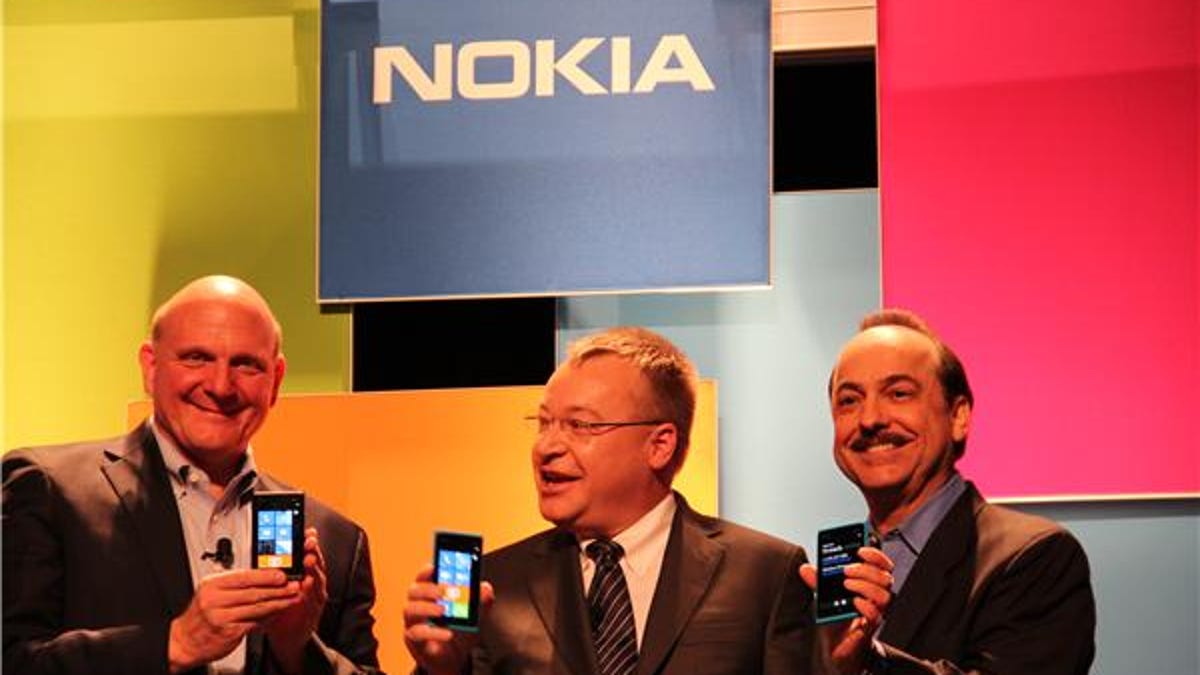AT&T drafts behind Microsoft's Windows 8 media blitz
The wireless provider believes it'll have an easier time selling Windows Phones with Microsoft seeding the market with other Windows products.

AT&T hopes the third time's the charm when it comes to Windows Phone.
While the company isn't putting all of its marketing muscle behind its lineup of Windows Phone 8 devices, it expects to benefit from the massive promotional push of Windows 8 from Microsoft. The telecommunications provider believes the proliferation of Windows 8 computers and tablets in the market will drive previously unseen demand for the smartphones.
"We are coordinating together to make sure we have an effective launch," said Ralph de la Vega, head of AT&T's mobile arm, in an interview with CNET today.
Microsoft, AT&T, and vendors such as Nokia and HTC have a lot invested in the success of the next-generation Windows platform and its unique use of live tiles. The success or failure of Windows Phone will determine whether it still has a large presence in the tech world as things go increasingly mobile. AT&T is looking for another viable operating system so it isn't so reliant on Apple and Google's Android.
The vendors have their own reasons to root for success. Nokia has bet the farm on the success of Windows Phone, while HTC is looking for a spark as it continues to struggle with its turnaround.
Windows Phone, however, will need all the help it can get. When the first launched, AT&T was upfront as the largest carrier supporter, but consumers largely ignored the phones. When Nokia jump aboard the Windows Phone bandwagon and released the 4G LTE-enabled
AT&T is at it again, this time with both Nokia and HTC in the fold. While Microsoft has silently endorsed HTC's
But the Lumia 920 will have a much more difficult time standing out as it did in March, when it was one of the few new smartphones in the market. Now, it competes against the
While AT&T spends more on marketing during the holiday period than earlier in the year, it's unclear just how much of that advertising budget will go to the Lumia 920 or Windows Phone 8X. De la Vega declined to go into specifics on marketing budgets.
De la Vega said the Lumia 920 would still be a visible part of the lineup, and that commercials would begin rolling for the device shortly. He believes that salespeople will begin recommending the Lumia 920 more once consumers come in and say they own a Windows 8 product.
"If a customer comes in the first logical question we ask is what computer do you own?" de la Vega said. "If they say Windows 8, it's only natural we recommend a Windows Phone. Why would you offer them something different?"
Microsoft is seeding the market with a large ecosystem of related products, which should build some buzz around Windows Phones, he said.
AT&T is also selling a number of tablets with Windows 8, which de la Vega said he is particularly bullish about.
"It's gonna rain tablets," he said during an investor presentation today.
De la Vega was in town with the rest of AT&T's leadership team to unveil a new plan to invest more into the company's wireline and wireless network in an effort to spur better long-term growth.
AT&T has been accused of underinvesting in its networks, so why now? De la Vega said it was because the company hadn't decided on whether to keep its wireline network. But after the leadership decided to keep the wireline network, the company realized it had to invest in upgrading it.
AT&T's investment comes at a time when its smaller rivals, T-Mobile and Sprint Nextel, are moving ahead with their own upgrade plans. T-Mobile's parent Deutsche Telekom vowed to spend more and is orchestrating a combination between T-Mobile and MetroPCS to create a more effective competition.
Sprint, meanwhile, already underway in its own massive network upgrade plan, has sought the help of Japanese telco SoftBank, which will take a majority stake in the company and infuse it with billions of dollars in capital.
In fact, SoftBank CEO Masayoshi Son bemoaned the "slow" U.S. networks and said he believed he could offer both a faster and less expensive service to the U.S, bringing a more competitive offering to the market.
De la Vega said that SoftBank would face challenges lowering prices and quickly improving the network deployment in the U.S., noting the significant difference between the U.S. and Japanese markets.
When asked about Son's comment on slow U.S. networks, de la Vega quipped, "He must have been using the Sprint network."

